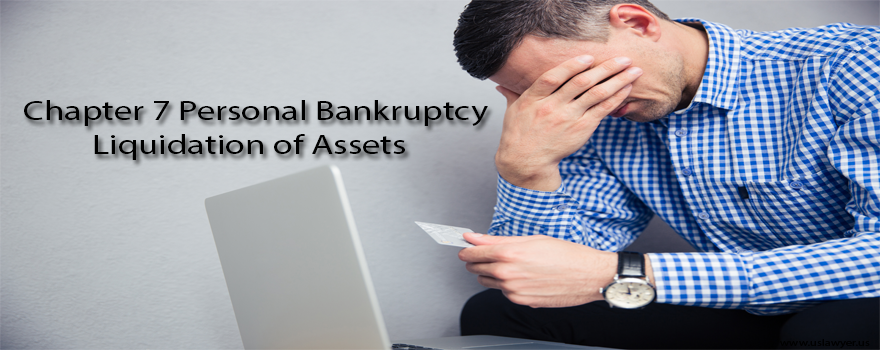
Chapter 7 Personal Bankruptcy: Liquidation of Assets
Just a few days ago, my friend Larry declared himself bankrupt. Things had not been going well for him since Sarah found themselves overwhelmed with the car and house loans and credit card payments. Then, with the recession hitting his employers hard, Larry found himself without a job.
Chapter 7 allows debtors certain exemptions:
Under Chapter 7 Personal Bankruptcy, the person’s assets are liquidated, and the money is used to pay off debts. An assigned trustee decides which of the nonexempt asset can dispose of. This trustee is usually someone who knows the Bankruptcy laws. The trustee meets the creditors and the debtor within 40 days after filing the case. A bankruptcy estate is created, consisting of the debtor’s property- real estate, equipment, leases.
The payment to the creditors makes on a priority basis which the Bankruptcy Code lays down. So, for example, if the person is divorced and owes alimony or child support, that is paid first.
The person is accorded certain exemptions according to Chapter 7. The debtor should be an individual, a partnership, or a business who will have to undergo a “Means Test.” This test rules out people with high income from the exemption. The debtor’s monthly salary should be below the state median. The trustee is not allowed to sell a certain portion of the property. The person can keep some amount which is the difference between the amount owed and what the property is worth.
Chapter 7 Personal Bankruptcy: Liquidation of Assets is different for individuals and corporations:
Chapter 7 ends differently for individuals and businesses. Chapter7 bankruptcy sees the court issuing orders to let the individual forego their duty of repaying the loan. Instead, the individual is allowed to make a new beginning with their finances.
In the case of a corporation, the property is liquidated, and the business is shut down. A corporation gets no discharge from its debts. Chapter 7 bankruptcy is an option for businesses when they are mishit, and even a Chapter11 relief is out of the question.
Chapter7 allows discharge even when the debtor has no property after applying for exemption. Chapter 7 can also be called “No Asset Bankruptcies” since the person is left with no assets to pay their debts after the exemption of their property. However, some debts, like child support, do not come under the exemption. Chapter7 Bankruptcy Code works differently for every case. A bankruptcy lawyer should consult.

